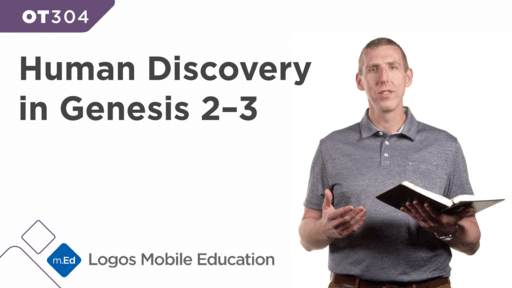OT304 Human Discovery in Genesis 2–3
Sign in to rateIt’s been said that the first three chapters of Genesis contain the interpretive keys for understanding all of Scripture. In Human Discovery in Genesis 2–3 (OT304) Dr. Dru Johnson takes on the task of unpacking the stories of Gen 2 and 3. Because we are so accustomed to thinking in terms of our native language, we sometimes miss important clues for exegesis or interpretation that would come easily to those who speak and/or read Hebrew. Johnson helps those who read Scripture in translation by giving examples of literary aspects of the Hebrew text that would be clear to Hebrew speakers or readers but are not intuitively grasped by those who read Scripture in translation.
Johnson’s literary analyses in this course are explained in simple, non-technical language to open the meaning of the biblical stories to modern readers. From Johnson’s literary analysis emerges a key paradigm for how to understand the Bible: Whose voice you listen to determines the kinds of actions you’re going to embody, which determine the kinds of things you can know and the kind of people you will become; therefore, it is imperative for the salvation and preservation of humanity to hear and heed the voice of God.
